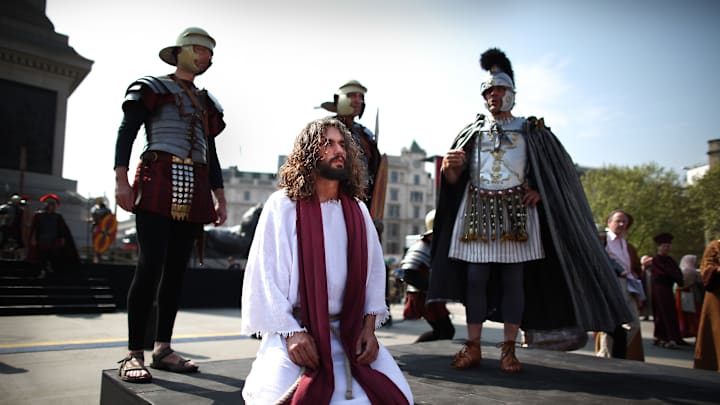Holidays are important times to come together with family, recognize the things we are grateful for, and honor our cultural or religious heritage. But it can be a little difficult to do when the timeline of most of your holidays changes every year.
This year, Easter falls on March 31, but it can take place any time between March 22 and April 25. This is a massive range, and it's somewhat strange that Easter changes, when something like Christmas never does.
In modern Christianity, Christmas and Easter are two of the most well-known holidays, but they actually function quite differently, especially when it comes to scheduling. Here's what you need to know about how Easter is scheduled and why it moves around so much.

How is the date for Easter decided?
While it might seem like Easter's date is decided arbitrarily, it's actually based on a very specific process. As detailed in more depth in our Ash Wednesday article, those celebrating Easter in the western world traditionally celebrate on the first Sunday after the first full moon of Spring.
To get the date of Easter, simply start with the Vernal Equinox (traditionally around March 20), and follow the math. In 2024, the Equinox took place on March 19. Conveniently, the full moon came the next week, on March 25. Easter takes place on the following Sunday, March 31.
The Eastern Orthodox Church technically uses the same formula, which was decided at the 1st Ecumenical Council at Nicaea, but it uses older calendars and calculations. They use the Julian calendar (which was effectively replaced in 1582), a fixed date of March 21 for the Vernal Equinox, and an estimate of moon cycles called the the Metonic Cycle.
This is all more historically accurate to when Jesus would have celebrated Passover, and thus to when the crucifixion and resurrection would have taken place. But it's also much harder for the layman to calculate.

What makes Easter change dates, while Christmas is always on December 25?
There are short and long answers for why Christmas and Easter function so differently. The simple answer is that Christmas celebrates Jesus's birth, and we usually celebrate birthdays on the same date every year. Easter, on the other hand, is deeply tied into its historical context, which requires it to align more closely with Jewish Passover traditions.
According to the Gospels, Jesus came to Jerusalem to celebrate Passover. The Last Supper is often considered to be Jesus and his disciples' observance of the Seder, after which Jesus was betrayed, crucified, and eventually, resurrected. It wouldn't make sense to celebrate Easter without some acknowledgment of its Passover context, so Easter must move, as Passover moves.
However, there's also some more complexity to the question, based on when each holiday was originally observed, who established the traditions, and how our understanding of time has changed (again).
The date of Christmas is actually quite a complicated theological question itself, as there is considerable evidence that Jesus was not born in December. Despite that, it has been celebrated on December 25 for the better part of the last two millennia. One theory for why December 25 was chosen is that it is exactly nine months after March 25, which has historically been documented as the date of the crucifixion.
Answering that question, however, makes it even more baffling that we don't just celebrate Easter every year on March 25. But the reasoning there has to do with the way the early church built the liturgical season. While Easter was celebrated early on, Christmas wasn't regularly celebrated until the Romans got involved.
The Romans and the Jewish people used two completely different calendar systems, which explains why the two key holidays are celebrated so differently. The Roman Empire was run according to the Julian calendar, which is relatively similar to the modern calendar. This was regimented, rather than being adjusted based on astronomical conditions, which explains why the Roman-era holiday would have a fixed date.
Easter, on the other hand, is based on the Hebrew calendar, which follows the position of the sun and moon. Since many of the early Christians were Jewish, they tied the observance of Easter to their own calendar. While they (and, indeed, Jesus) were technically part of the Roman Empire, they weren't going to let it define how they celebrated their religion.
Essentially, Easter was first celebrated by the early Christians, who followed the Hebrew calendar. Christmas was celebrated by those who lived in the Roman Empire, which followed the Julian calendar. Despite having some major changes to the calendars since, we follow their lead.
Got questions about history, trivia, or anything else? Send an email to askeverest@fansided.comand we might answer here on the site!
